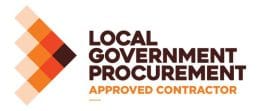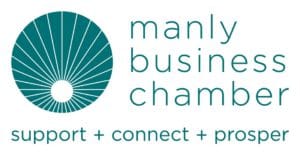Interview Behaviours That Could Harm Your Professional Image
You’ve polished your resume, rehearsed your elevator pitch, and picked the perfect outfit. You walk into your interview confident and prepared — or so you think. But sometimes, it’s not the obvious missteps like showing up late or forgetting the interviewer’s name that cost you the job. It’s the subtler things — the little habits or comments you don’t even realise are making the wrong impression.
Here are some surprisingly common interview moves that can make you seem unprofessional — and how to avoid them.
- Overselling Yourself Without Backing It Up
Confidence is great. Arrogance? Not so much. Saying things like “I’m the best person for the job” or “I’ve mastered everything in this role” without examples can backfire. Employers want confidence paired with humility — and proof.
Do this instead: Highlight achievements with evidence. Say, “In my last role, I increased customer retention by 25% by launching a loyalty program,” rather than vague boasts.
- Talking More Than You Listen
Nerves can make anyone chatty, but dominating the conversation can come off as self-centred or unaware. Interviews should be a two-way dialogue, not a monologue.
Do this instead: Aim for a 50/50 balance. Actively listen, respond thoughtfully, and ask meaningful questions that show curiosity and professionalism.
- Trash-Talking Past Employers
Even if your last boss was a walking red flag, venting about them in an interview is a major faux pas. It signals that you might be difficult to work with — or worse, disloyal.
Do this instead: Stay neutral and focus on what you learned or what you’re looking for next. “I’m looking for a culture that values open communication and growth” sounds much better than “My last job was toxic.”
- Using Overly Casual Language or Slang
Saying things like “Yeah, I crushed it” or “I’m low-key obsessed with project management” might fly in a team chat, but not in an interview. Being too casual can undermine your professionalism.
Do this instead: Keep your tone friendly but polished. Read the room — some workplaces are more relaxed, but it’s better to err on the side of professionalism.
- Not Knowing Anything About the Company
When you can’t answer “What do you know about us?” or “Why do you want to work here?”, it shows a lack of preparation — and enthusiasm.
Do this instead: Research the company beforehand. Mention specific things like recent projects, values, or products that excite you.
- Overusing Buzzwords Without Substance
Saying you’re a “results-driven, proactive team player” sounds good — unless that’s all you’ve got. Empty buzzwords without real examples sound generic and rehearsed.
Do this instead: Pair every “power word” with a real-life context. Instead of saying you’re “innovative,” describe a time you introduced a new process that saved time or money.
- Fidgeting or Slouching on Camera (or In Person)
Nonverbal cues speak volumes. Constantly adjusting your hair, slouching, or avoiding eye contact can signal nervousness, disinterest, or lack of confidence.
Do this instead: Practice good posture, maintain eye contact (even virtually), and keep your body language calm and open.
- Asking About Salary Too Early
Bringing up pay before the interviewer has had a chance to assess your value can be off-putting. It makes it seem like money is your only motivator.
Do this instead: Wait until the employer brings up the topic, or until you’re further into the process. If they ask your expectations, have a researched, reasonable range ready.
Final Thoughts
Interviewing is as much about what you don’t do as what you do. Being mindful of these subtle missteps can help you project the polished, capable professional you really are — and land the role you deserve.
If you’re looking for a new role, contact our professional team today on info@optimalrecruitment.com.au or 02 8416 4181.










